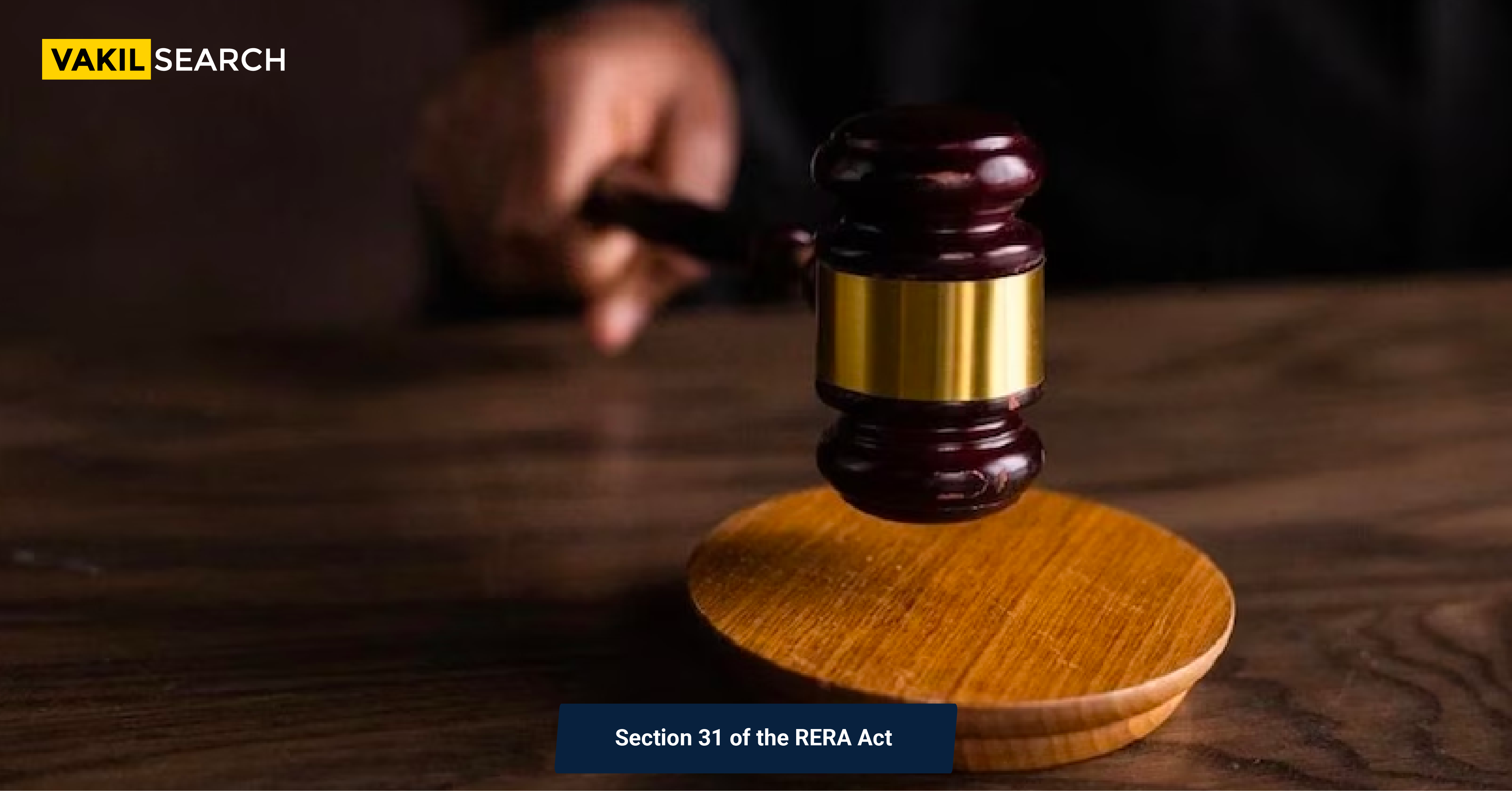Delve into Section 31 of the RERA Act, a pivotal aspect for homebuyers and builders. This guide demystifies its provisions, offering real-world examples and addressing frequently asked questions.
Introduction
The Real Estate (Regulation and Development) Act, 2016 (RERA Act) is an Indian legislation that aims to protect the rights and interests of consumers by minimizing malpractices done by developers and promoting uniformity in business practices and transactions in the real estate sector. One of the key provisions of the RERA Act is Section 31, which allows buyers, real estate agents, and builders to file complaints against one another.
In this blog post, we will discuss Section 31 of the RERA Act in detail, including who can file a complaint, the process for filing a complaint, and the consequences of non-compliance.
Who Can File a Complaint Under Section 31 of the RERA Act?
According to Section 31 of the RERA Act, an aggrieved party, such as a homebuyer, real estate promoter, or real estate agent, can file a complaint with the Authority in case of any violation of the provisions of the RERA Act.
What is the Process for Filing a Complaint Under Section 31 of the RERA Act?
The process for filing a complaint under Section 31 of the RERA Act varies depending on the state in which the property is located. However, in general, the following steps need to be followed:
- The complainant needs to fill out a complaint form, which is available on the RERA website of the respective state.
- The complainant needs to attach all relevant documents, such as the sale agreement, payment receipts, and correspondence with the builder or agent.
- The complainant needs to pay the requisite fee, which varies from state to state.
- The complaint is then reviewed by the RERA Authority, which may ask for additional information or documents.
- The RERA Authority then issues a notice to the opposite party, i.e., the builder or agent, and gives them an opportunity to respond.
- The RERA Authority then conducts an inquiry and passes an order, which may include compensation to the complainant, penalty on the opposite party, or both.
What Are the Consequences of Non-compliance With Section 31 of the RERA Act?
If a builder, real estate agent, or buyer fails to comply with the provisions of Section 31 of the RERA Act, they may face penalties and fines. The RERA Authority has the power to impose penalties, which may include imprisonment if the violation is severe.
Conclusion
Section 31 of the RERA Act is an important provision that allows aggrieved parties to file complaints against builders, real estate agents, and buyers. The process for filing a complaint varies from state to state, but it generally involves Filling RERA out a complaint form, attaching relevant documents, and paying a fee. Non-compliance with Section 31 can result in penalties and fines, including imprisonment in severe cases.
FAQs
What is RERA?
RERA is a law that was enacted in India in 2016 to regulate the real estate sector. The law aims to protect homebuyers and promote transparency and accountability in the sector.
Who is covered by RERA?
RERA covers all real estate projects in India, including residential, commercial, and industrial projects. The law also covers real estate agents and brokers.
What are the benefits of RERA for homebuyers?
RERA provides a number of benefits to homebuyers, including: Protection from fraud and delays: RERA requires builders to disclose all relevant information about their projects and to register their projects with the RERA authority. This helps to protect homebuyers from fraud and delays. Transparency: RERA requires builders to provide regular updates to homebuyers on the progress of their projects. This helps to promote transparency and accountability in the sector. Dispute resolution mechanism: RERA establishes a fast-track dispute resolution mechanism to resolve disputes between homebuyers and builders.
How do I file a complaint under RERA?
To file a complaint under RERA, you can use Form M or N. The form can be downloaded from the website of the RERA authority in your state. The complaint must be specific and must include all relevant information, such as the name of the parties involved, the nature of the complaint, and the relief sought.
How long does it take to resolve a RERA complaint?
The RERA authority is required to resolve complaints within 60 days. However, the period may be extended in certain cases, such as if the complaint is complex or if the parties agree to an extension. If you have any other questions about RERA, you can consult with a qualified professional from Vakilsearch. Request a callback today!
Read more:-










